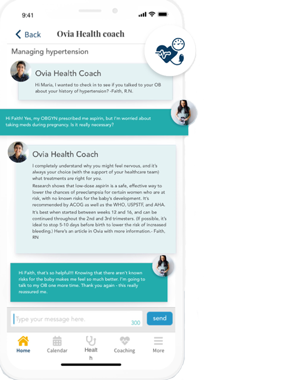- Patients Patients
Reproductive Genetics Testing
Patient Resources
Cost & Billing
- Providers Providers
- Genetic Counseling
- Login Login
- Estimate My Cost

Prepare today for your family’s tomorrow
Carrier Screening
Based on early studies, every person is estimated to carry approximately three to five genetic mutations.1 Carrying a mutation does not typically cause any related disorders for that person, but it can mean that their children are at risk for having a disorder.
Choices in Carrier Screening
Carrier Screening
Carrier screening can help detect if a couple is at increased risk of having a baby with a specific inherited disorder, such as Tay-Sachs disease or cystic fibrosis. Labcorp offers choice in carrier screening: from a comprehensive screen for more than 500 disorders to a targeted screening for specific disorders.

Reasons for Testing
Understanding your testing options helps you to prepare for the future. You may have many reasons for testing, including:
• desire to be empowered with information about your genetic risks for family planning purposes
• concerns regarding inherited disorders
• an increased risk of being a carrier of an inherited disorder due to ethnic background
• a family history of a specific inherited disorder
Genetic disorders may be caused by a change in a gene. This change is called a mutation.
Most genetic disorders are inherited through what is referred to as autosomal recessive inheritance. Every person has two copies of each gene, one inherited from each parent.
With autosomal recessive inheritance, a carrier is a person who has one normal copy of a gene and one mutated copy. Having one normal gene is often enough to prevent the disorder. When both parents are carriers of the same mutation, there is a chance that each parent will pass this mutation on to their baby. If the baby inherits two copies of the mutated gene, the baby will have the disorder (prenatal diagnosis can be performed to determine whether or not the fetus is affected).
(NOTE: In addition to autosomal recessive diseases, some genes require only the mother to carry a mutation for a child to be at risk for inheriting the disorder. Disorders inherited in this way, such as fragile X syndrome, are called X-linked disorders.)
When Both Parents Are Carriers
When both parents are carriers, with each pregnancy there is a:
- 25% (1 out of 4) chance that the child will inherit two normal genes, and will be neither a carrier, nor affected with the disorder
- 50% (2 out of 4) chance that the child will inherit one normal and one mutated gene, and will be a carrier of the disorder (but not affected with the disorder)
- 25% (1 out of 4) chance that the child will inherit two mutations, one from each parent, and will be affected with the disorder
As mentioned, other genes require only the mother to carry a mutation for a child to be at risk for inheriting the disorder. Disorders inherited in this way (such as fragile X syndrome) are called X-linked disorders.
For recessive disorders, both parents must carry a mutation in the same disorder-causing gene for a baby to be affected. Which is why if a disorder-causing gene mutation is found in the mother, we can screen that specific gene in the father and help families better identify an at-risk pregnancy.
If you have additional questions about carrier screening, please talk with your doctor, a genetic counselor or other specialist in genetics.
Understanding Carrier Screening Testing Options
This video explains genetic inheritance and carrier screening for genetic disorders such as cystic fibrosis and sickle cell anemia.
Understanding Your Inheritest Results
This video explains what your Inheritest results mean and what next steps or other testing you might consider.
Additional Resources
Reference
1. Chong JX, et al. A Population-Based Study of Autosomal-Recessive Disease-Causing Mutations in a Founder Population. Am J Hum Genet. 2012 Oct 5; 91(4): 608-Q20





